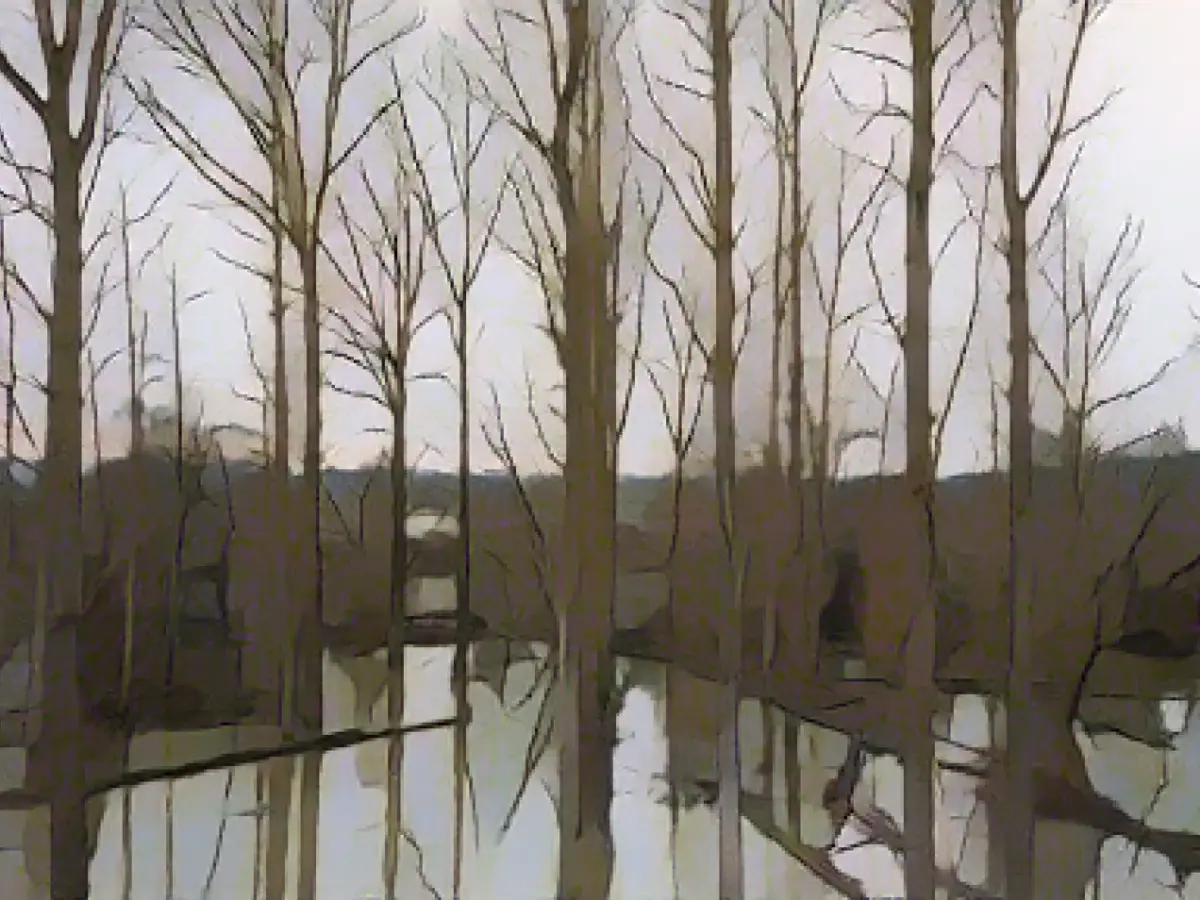Southern Germany - WWF: Only one percent of streams and rivers are near-natural
Environmentalists classify just over one percent of rivers and streams in southern Germany as near-natural. This was the result of an analysis by water ecologists for the environmental protection organization WWF. "The situation is sobering, hardly any streams or rivers still flow anywhere near naturally," said Franka Lenz from WWF Germany on Wednesday.
Despite the bad news, there are still "gems among the watercourses" that have managed to retain their natural character. "The people there can be proud of this special piece of home." The waters can be found in the low mountain ranges and in the Alpine region. In regions with a higher agricultural and settlement density, the watercourses are already too heavily modified.
The environmentalists consider a "near-natural state" to be a natural watercourse structure and water flow with little or no obstruction, a natural bed load balance and good water quality.
According to the analysis, 56 stretches of water in Bavaria with a total length of almost 350 kilometers (1.3 percent of watercourses) meet these criteria. These include the Ammer in Upper Bavaria, the Tirschenreuther Waldnaab in the Upper Palatinate and the Breitach in the Allgäu. In Baden-Württemberg, 24 sections with a length of just over 125 kilometers (0.9 percent of all watercourses) were identified, including three in the southern Black Forest, namely Wutach, Ibach and Schwarzenbach.
The task now is to protect these watercourses together. This requires a sustainable development plan. In order to achieve these goals, the WWF is introducing the "Gewässerperlen PLUS" label in southern Germany.
Analysis on the Internet
Read also:
- A clan member is punished here
- Traffic lawyer warns: Don't talk to the police!
- Will he be convicted as Jutta's murderer after 37 years?
- He also wanted to kill his cousin
- Franka Lenz, an environmentalist from WWF Germany, expressed concerns about the state of rivers and streams in southern Germany, as only 1% of them are classified as near-natural.
- In regions with high agricultural and settlement density, watercourses are heavily modified, making it difficult for them to maintain their natural character.
- Despite the mass modification, WWF Germany has identified 56 stretches of water in Bavaria and 24 sections in Baden-Württemberg that meet the criteria for a near-natural state.
- To protect these watercourses, WWF Germany is introducing the "Gewässerperlen PLUS" label in southern Germany, which aims to promote sustainable development plans.
- Environmental organizations like WWF play a crucial role in nature conservation efforts, working to protect rivers, streams, and other watercourses from further degradation in regions such as Baden-Württemberg and Southern Germany.
Source: www.stern.de








